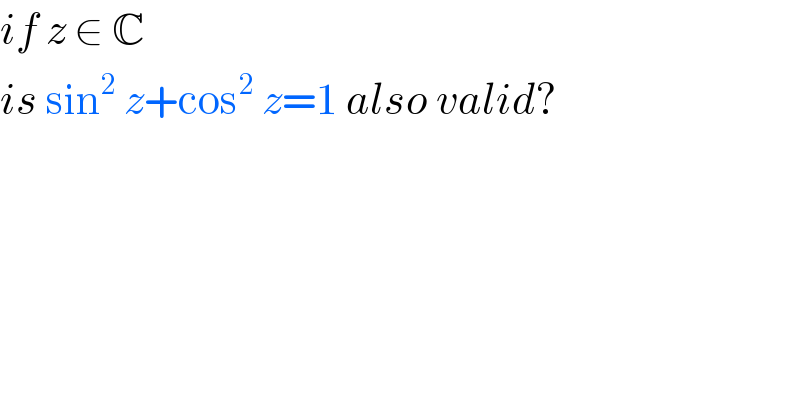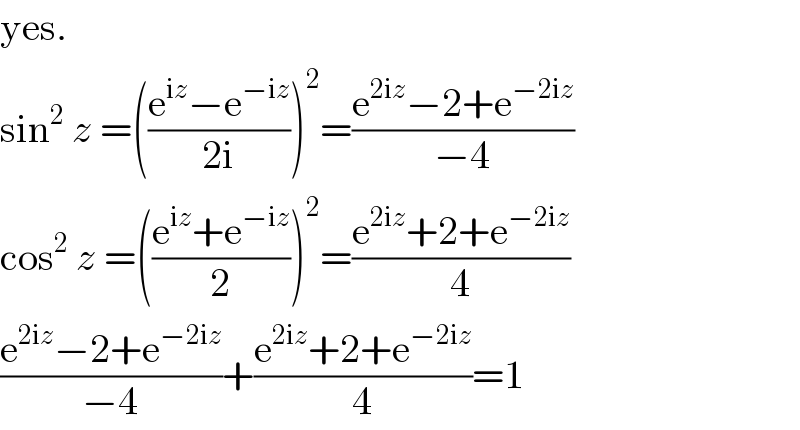
Question Number 75655 by mr W last updated on 15/Dec/19

$${if}\:{z}\:\in\:\mathbb{C} \\ $$$${is}\:\mathrm{sin}^{\mathrm{2}} \:{z}+\mathrm{cos}^{\mathrm{2}} \:{z}=\mathrm{1}\:{also}\:{valid}? \\ $$
Answered by MJS last updated on 15/Dec/19

$$\mathrm{yes}. \\ $$$$\mathrm{sin}^{\mathrm{2}} \:{z}\:=\left(\frac{\mathrm{e}^{\mathrm{i}{z}} −\mathrm{e}^{−\mathrm{i}{z}} }{\mathrm{2i}}\right)^{\mathrm{2}} =\frac{\mathrm{e}^{\mathrm{2i}{z}} −\mathrm{2}+\mathrm{e}^{−\mathrm{2i}{z}} }{−\mathrm{4}} \\ $$$$\mathrm{cos}^{\mathrm{2}} \:{z}\:=\left(\frac{\mathrm{e}^{\mathrm{i}{z}} +\mathrm{e}^{−\mathrm{i}{z}} }{\mathrm{2}}\right)^{\mathrm{2}} =\frac{\mathrm{e}^{\mathrm{2i}{z}} +\mathrm{2}+\mathrm{e}^{−\mathrm{2i}{z}} }{\mathrm{4}} \\ $$$$\frac{\mathrm{e}^{\mathrm{2i}{z}} −\mathrm{2}+\mathrm{e}^{−\mathrm{2i}{z}} }{−\mathrm{4}}+\frac{\mathrm{e}^{\mathrm{2i}{z}} +\mathrm{2}+\mathrm{e}^{−\mathrm{2i}{z}} }{\mathrm{4}}=\mathrm{1} \\ $$
Commented by mr W last updated on 15/Dec/19

$${thank}\:{you}\:{for}\:{comfirming},\:{sir}. \\ $$
